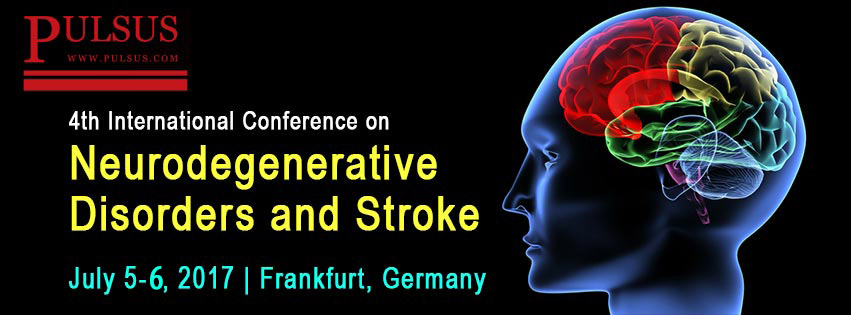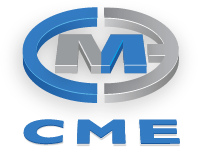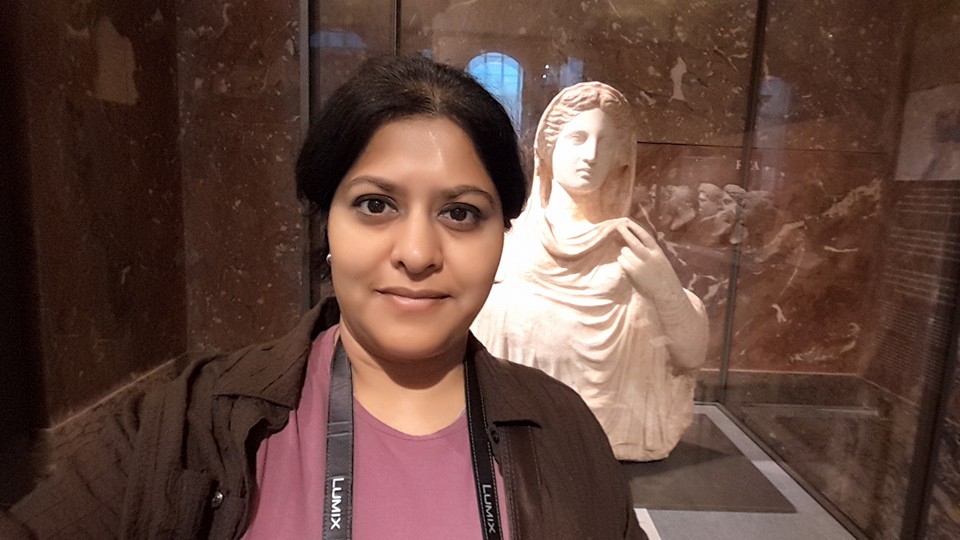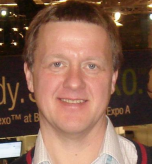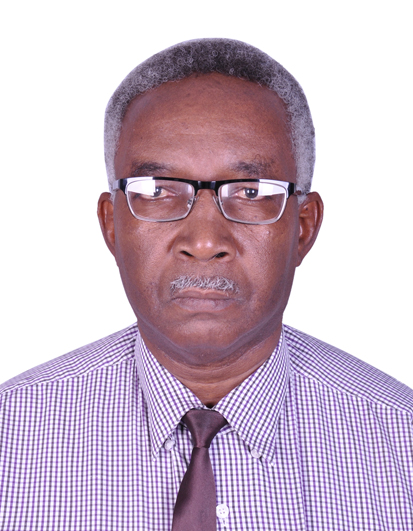Renowned Speakers
We’ve invited the top most influential speakers from around the world to give inspirational talks and lead practical workshops.
Conference Information
About Conference
On behalf of Pulsus Group, we are esteemed to invite you to join 4th International Conference on Neurodegenerative disorders and Stroke which will be held from July 05-06, 2017 at Frankfurt, Germany.
Brain Stroke 2017 has been planned and implemented in accordance with the accreditation requirements and policies of the Accreditation Committee.
The live format of this educational activity will be accredited with CME and CPD Credits
The conference will be organized around the theme ‘New Modalities and research in expanding the field of Neurodegenerative disorders, Neuromodulation and Stroke’. Our goal is to deliver an outstanding program which covers the entire spectrum of research in neurological disorders and stroke and share the cross-cultural experiences of various treatment procedures.
Brain Stroke 2017 is an annual meeting of Neuroscience organizations as well as Stroke committees to discuss the future of the Neurological disorders in terms of collaboration, structures and organizational development.
A stroke occurs when the blood supply to your brain is interrupted or reduced. This deprives your brain of oxygen and nutrients, which can cause your brain cells to die. A stroke may be caused by a blocked artery (ischemic stroke) or the leaking or bursting of a blood vessel (hemorrhagic stroke). Some people may experience only a temporary disruption of blood flow to their brain (transient ischemic attack, or TIA).
Conference Opportunities
For Researchers and Faculty Members:
Speaker Presentations
Poster Display
Symposium hosting (4-5 member team)
Workshop organizing
For Universities, Associations & Societies:
Association Partnering
Collaboration proposals
Academic Partnering
Group Participation
For Students and Research Scholars:
Poster Competition (Winner will get Best Poster Award)
Young Researcher Forum (YRF Award to the best presenter)
Student Attendee
Group registrations
For Business Delegates:
Speaker Presentations
Symposium hosting
Book Launch event
Networking opportunities
Audience participation
For Product Manufacturers:
Exhibitor and Vendor booths
Sponsorships opportunities
Product launch
Workshop organizing
Scientific Partnering
Marketing and Networking with clients
Pulses Group
Pulsus Group is a Medical publisher that adheres to stringent peer-review procedure with a view to set an example in promoting standard medical research with integrity. Pulsus Group takes pride in getting the endorsements of prestigious associations and societies like Germany medical societies. As an ardent supporter of medical publishing, Pulsus Group closely associates with the Germany and other international medical research associations. It publishes a wide range of medical journals that focus on medical specialties like cardiology, Integrative Medicine, Surgery and Reproductive Medicine.Pulsus group is closely associated with globally renowned academic and research societies like Germany Society of Plastic Surgeons, Germany Society for Aesthetic Plastic Surgery, Groupe pour l'Avancementde la Microchirurgie Germany, Germany Society for Surgery of the Hand.
Pulsus Group. is an internationally renowned peer-review publisher in scientific, technical, and medical journals established in the year 1984 with offices in Ontario, Canada and Hyderabad, India has acquired Andrew John Publishing and openaccessjournals.com to expand its Open Access Publishing through its 50+ journals in association with 20+ International medical and scientific societies.
Pulsus through its cmesociety.com is been very instrumental to provide an invaluable channel for scientists and researchers to exchange ideas and research by creating a forum for discussing the possibilities of future collaborations between universities, institutions, research bodies and organizations from different countries through international CME/CPD accredited conferences and meetings.
Market Analysis
According to the American Heart Association (AHA) and the American Stroke Association (ASA), 87% of strokes results from blood vessel blockage that impedes blood flow in the brain.They are called ischemic strokes and are less fatal than haemorrhagic strokes, in which blood leaks into brain.Ischemic stroke occurs when a clot physically hampers blood flow.The clot can be formed either at the ischemic zone (area of the stroke) or elsewhere, in which case, it detaches and travels through the bloodstream until it reaches a blood vessel too small to pass.
Brain stroke is a general term that describes a group of symptoms-such as Ischemic stroke, heart attack, loss of memory, judgment, language, complex motor skills, and other intellectual function-caused by the permanent damage or death of the brain's nerve cells, or neurons.
Brain stroke, including Ischemic strokes, Hemorrhagic strokes, and Transient ischemic attacks is one of the biggest global public health challenges facing our generation
Sessions Description
Brain Stroke 2017 is an annual meeting of Neuroscience organizations as well as Stroke committees to discuss the future of the Neurological disorders in terms of collaboration, structures and organizational development.
Stroke is ranked as the second leading cause of death in the Europe and third leading cause of death in USA. Cost burden of Neurological disorder is $43 billion per year including direct cost of medical care and therapy of $23 billion per year. Each year nearly 800,000 people experience a new or recurrent stroke.
FDA submitted drug market report on central nervous system disorders which is estimated $78 billion in 2010 and to reach nearly $81.8 billion by 2015. The market survey forecast of neurological disorders is more than $500 billion per year and also the cost of stroke care is expensive too.
Session on: Brain Stroke
Brain stroke occurs when the blood supply to brain reduces or interrupted, which deprives oxygen and nutrients to brain, causing brain cells death. Brain stroke may be caused by a blocked artery also known as ischemic stroke or it may cause due to leaking or bursting of a blood vessel hemorrhagic stroke.
Session : Acute Ischemic Stroke
Acute ischemic stroke is a permanent brain injury, occurs when a blood vessel carrying blood to the brain is blocked by a blood clot, leading the blood not to reach brain. Acute ischemic stroke is caused by embolic or thrombotic occlusion of a cerebral artery and is common than hemorrhagic stroke.
Session: Cerebrovascular Disorders
Cerebrovascular disorders are conditions that are caused by problems which affect the blood supply to the brain. It is third most frequent cause of death and leading cause of adult disability. Of the 750,000 people suffer stroke annually 170,000 will die due to stroke.The most common forms of cerebrovascular disease are cerebral thrombosis and cerebral embolism followed by cerebral haemorrhage.The four most common types are: Stroke, subarachnoid haemorrhage, Transient ischaemic attack and vascular dementia.
Session: CNS Disorders
CNS Disorders is a broad category of conditions in which the brain does not properly function, limiting health and organs functionality. CNS disorders can affect either the brain or the spinal cord which results in psychiatric disorders or neurological disorders.The causes of CNS diseases are stroke, brain trauma, autoimmune disorders, infections, structural defects, degeneration and tumors. So here we focus on mood disorders, neurodegenerative diseases, schizophrenia and autism.Meningitis is a relatively rare infection that affects the delicate membranes called meninges that cover the brain and spinal cord. Encephalitis is the inflammation of the brain which is caused by infection or allergic reactions.
Session: Neuro Oncology
Neuro Oncology is study of treatment for patients with cancers of the brain and nervous system.There are some of the conditions and symptoms which includes: Acoustic neuroma, Brain metastases, Astrocytoma, Chordoma, Ependymoma, Craniopharyngioma, Glioblastoma multiforme, Glioma, Lymphoma, Meningioma, Medulloblastoma, Oligodendroglioma, Braintumors, Pineal tumor and Schwannoma. Brain tumors are classified on the basis of the location of the tumor and the type of tissue involved and may be malignant or benign. Primary brain tumors arise from the brain cells and include astroglial tumors, oligodendroglial tumors, neuroglial tumors, ependymal tumors, embryonal cell tumors , and germ-cell tumors. Secondary or metastatic tumors metastasize from another part of the body and are more common than primary brain tumors. The most common types of cancer that spreads to the brain include melanoma, breast, colon and lung.
Session: Neurodegenerative Disorders
Neurodegeneration Disorders is the process by which a part of your brain dies as a result of trauma or disease. Neurodegenerative Disorders affect many of your body's activities like balance, movement, talking, breathing, and heart function.Degenerative nerve diseases includes: Alzheimer's disease, Amyotrophic lateral sclerosis, Huntington's disease, Friedreich's ataxia, Parkinson's disease, Lewy body disease and Spinal muscular atrophy.These diseases often strike older adults and are characterized by progressive deterioration of nerve cells which eventually leads to cell death.Each neurodegenerative disease is characterized through its unique aggregated protein. ß-amyloid (Aß) represents as hallmark of Alzheimer’s disease, whereas α-synuclein is the key protein in Parkinson’s disease and Dementia with Lewy bodies (DLB).
Session: Aging Disorders
Aging is the overwhelming risk factor for developing any of a number of phenotypically distinct neurodegenerative diseases and the increasing prevalence, along with human life span which represents a major scientific challenge for the biomedical research community and a growing public health problem.Neurologic disorders of aging are also known as Geriatric neurology which causes problems typical of old age in younger adults.
Session: Neurological disorders and Chronic Pain
There are more than 600 diseases of the nervous system such as brain tumors, epilepsy, Parkinson's disease, dementia and stroke.Chronic pain is a frequent component of many neurological disorders which affects 20–40% of patients for many primary neurological disorders .Medications, local electrical stimulation, acupuncture and brain stimulation as well as surgery are some of the treatments for chronic pain.
Session: Stroke Management
Stroke occurs when an artery supplying blood to the brain either suddenly becomes blocked or begins to bleed which may result in part of the brain dying or leading to a sudden impairment that can affect a range of activities such as speaking, movement, thinking and communication.Therapies to prevent recurrent stroke are also a component of acute management which are similar to prophylactic medical or surgical therapies used for patients with transient ischemic attacks and high-risk patients.The goal of neurosurgery is to restore blood flow to the brain and reduce the risk of stroke.
Session: Modern Diagnostics
The clinical signs and symptoms related to mass effect like seizures, headache and neurological and cognitive deficits.Chemotherapy treatment of brain tumor is done with anti-cancer drugs which are given to destroy or control cancer cells Morphological assessment is done by using computed tomography or magnetic resonance imaging which is still the workhorse of tumor detection.The technology assisted facilities such as Cranial electrical stimulation and Transcranial magnetic stimulation are helpful in brain recovery.The goal of neurosurgery is to restore blood flow to the brain and reduce the risk of stroke. The type of graft and underlying conditions used is responsible for the effectiveness of bypass.
Session: Neurological Nursing
The Goal Of This Session Is To Know Nursing Activities That Have The Potential To Maximize Outcomes For Severe Brain Disorders. In This Session We Will Be Discussing About: Advance Practice Nursing, Geriatric Nursing, Movement Disorders, Multiple Sclerosis, Neuro-Oncology, Neurotrauma, Pediatrics Nursing, Spine And Stroke.
Session: Neuro Pharmacology
Neuropharmacology is the learning of how drugs influence cellular function in the nervous system and the neural mechanisms through which they influence behavior.Advanced studies are being made to improvise developments in drugs to treat numerous diverse neurological disorders, including neurodegenerative diseases known to be Parkinson's disease and Alzheimer's disease, dementia, addiction, psychological disorders.
Session: Clinical Trials & Case Reports
In clinical study, a case report signifies the detailed report of symptoms, signs, diagnosis, treatment and follow-up of an individual patient suffering neurological disorders. Case reports may contain a demographic profile of the patient but usually describe an unusual or novel occurrence. Case reports have been playing a pivotal role in medical education, providing a structure for case-based learning and implementation.
Session: Stroke Rehabilitation and Recovery
Stroke is one of the main leading causes of long term adult disability which is affecting approximately 795,000 people each year in the USA.Someone who suffered a stroke can improve functions and sometimes remarkable recoveries by early recovery and rehabilitation.Neurorehabilitation is a complex medical process which aims to aid recovery from a nervous system injury. Neurological rehabilitation program is aimed to create awareness about the neurological disorders and its diagnosis. Neurologist, physiatrist, rehabilitation nurse and therapist provide special guidance and care to stroke affected patients.The goal of a stroke rehabilitation program is to help you relearn skills which are lost when stroke affected part of brain. Stroke rehabilitation can help to regain independence and improve the quality of life.
Session: Therapeutic Approaches
New therapies for stroke can be developed by understanding the mechanisms of neuronal death which includes the role of excitotoxic neurotransmitters, free radical production and apoptotic pathways.The cognitive approaches and rehabilitation therapy of stroke are cognitive impairment involves a vast array of difficulties including judgment, memory, attention, problem solving skills, visuospatial deficits, orientation and recovery of memory impairments following Stroke. Cognitive Behavioral Therapy treatment is one approach for treating primarily behavioral neurological issues and also formerly known as talk therapy.The other therapeutic methods which are preferred through medications such as the neuroleptics which are used to treat organic disorders of the brain such as schizophrenia to comparatively simple analgesics, such as ibuprofen, acetaminophen and opiates to treat the painful effects of several neurological ailments.
